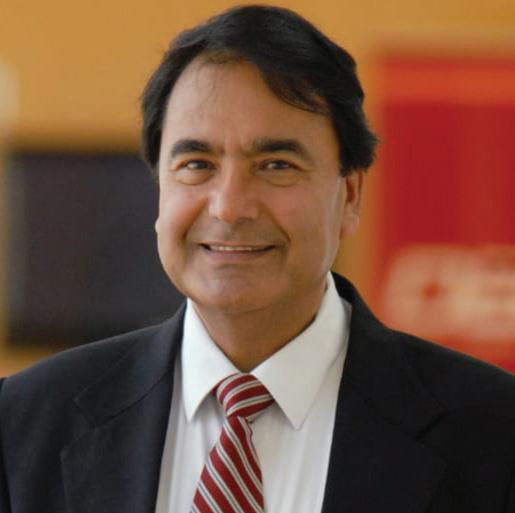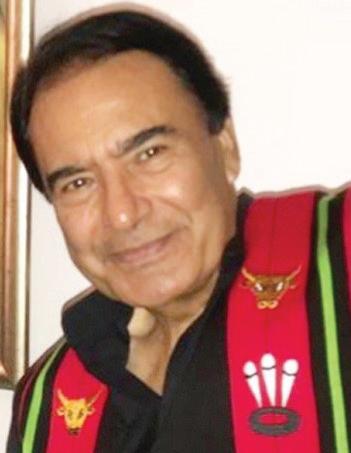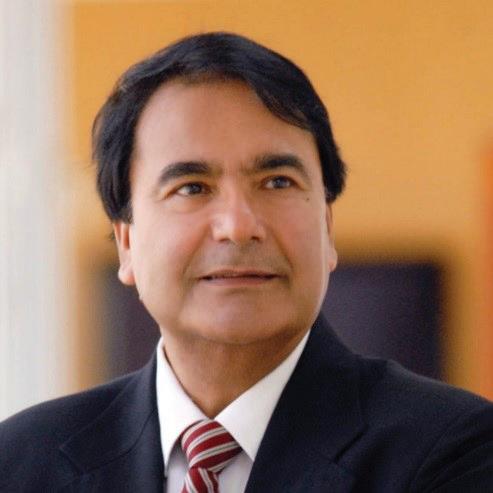
6 minute read
INDERJIT SINGH
LEADERSHIP DECODED: ...…one constant – infinite variables
Advertisement
— BY INDERJIT SINGH
Everyone has a perception of what leadership is, but deciphering what it truly means, is the name of the game! Creating a cohesive definition that is specific to one’s organization is a crucial step for managing the show and simultaneously developing future leaders, with a strong leadership focus – an essential prerequisite for any leadership role.
We talk about leaders and leadership nearly every day in the professional world, but have we ever tried to actually define leadership in its different manifestations? It can be much harder than we may think, but taking the time to define leadership and what makes a leader is crucial to building an all-inclusive business environment.
In my professional ventures until date, I personally have had the privilege and the good fortune of working with multinational - multidisciplinary professional executives and political leaders in a range of business sectors across-theboard in several global locations worldwide. I can vouch for the fact that they live these principles every day of the week. These leaders set the bar high, and then they constantly raise it, which is inspiring and motivating.
Skillful leadership is crucial to achieving business goals. There is a set of leadership principles that a leader should follow to help them maximize the potential of their employees. Some people are natural leaders, while others must develop the skills and abilities that they need to lead effectively.
In this maiden segment and in the series of articles on the subject matter in the forthcoming editions of the Powerhouse Global Magazine; I would attempt to deliberate on what the dominant leadership principles and the top virtues that leaders must essentially need to embrace to excel in this domain; more importantly in the present and the future everchanging global ecosystem. You’ve probably often heard the expression “born leader.” The phrase implies that the qualities that make a good leader are innate - you’re either born with the skills it takes to be a leader, or you’re not. True, that certain traits tend to be innate-such as charisma, humility, and a sense of humor. However, two research studies; one study with male twins and another with female twins found that only one-third of the variance in leadership qualities is associated with heredity. The rest are cultivated.
I believe, there is no universal definition for leadership appropriate to all needs. Its existence is a myth we should exorcise.
LEADERSHIP REDEFINED
So, what is leadership, and who is a leader? What skills do great leaders need?
A true leader has the confidence to stand alone, the courage to make tough decisions, and the compassion to listen to the needs of others and become one by the equality of their actions and the integrity of their intent. There have been countless people through history that led people but were inhumane and destructive. Does that still make them leaders? In my mind, a leader is someone who does more than just lead people. They drive them by the right motivation and make a positive impact on the people around them – being positive, as the prime driving force.
A leader is someone who can see how things can be improved and who rallies people to move towards that better vision. Leaders can work toward making their vision a reality while putting people first. Just being able to motivate people isn’t enough — leaders need to be empathetic and connect with people to be successful.
A strategy to help decide which leadership style is best suited and when, thus becomes paramount. Different situations may have different requirements, so it becomes important to know when and where a specific style might work best. There are different motivations; and so are different solutions.
Who then is a Leader? A leader is someone who inspires passion and motivation in the followers.” “A leader is someone with a vision and the path to realizing it.”
“A leader is someone who ensures their team has support and tools to achieve their goals.”
A leader may be any of these things, but a good leader is all three, put together. with independently accountable passion.

An effective leader has a shared vision aligned with core values and understands what it will take to reach their team goals. They inspire, manage, and support their teams to work creatively and confidently toward that shared vision. They empower their team members to embrace their own unique leadership qualities and act
MY TAKE
My strong conviction is that while as leadership is a given constant; there are infinite variables to leadership styles in its different manifestations. Leadership cannot be really taught. It can only be learned. The most powerful leadership tool you have is your own personal example.
I tend to resonate with this quote of Peter Drucker – one of the best-known and most widely influential thinkers and writers on the subject of management theory and practice “Leadership is not magnetic personality – that can just as well be a glib tongue. It is not ‘making friends and influencing people’ – that is flattery. Leadership is lifting a person’s vision to high sights, the raising of a person’s performance to a higher standard, the building of a personality beyond its normal limitations”
If I was to sum it all, I would say “Great leaders don’t set out to be leaders; they set out to make a difference. It’s never about the role – always about the goal. Leaders don’t force people to follow, they invite them in the journey. I welcome you all to join me in this journey in demystifying the concept of leadership. Realization has dawned on me that the most powerful leadership tool you have is your own personal example. If your actions inspire others to dream more, learn more, do more and become more; then you are a leader!

KNOW THE AUTHOR
Inderjit has recently been honored with Doctor of Philosophy by a renowned Brazilian Institution of higher education for his contribution in International Diplomacy. He is an Aviation Consultant with the UN. He has served in senior level diplomatic positions in several countries of Asia, South-East Asia, Middle-East, Africa and South America. He was the CEO of IGI Airport – the 16th busiest in the world. He is an MBA, followed by advanced management courses at “Henley-the Management College”, Oxford shire, UK and the University of California, Berkeley, USA. He can be reached at inderjit.singh@ aviationanalyst.net







